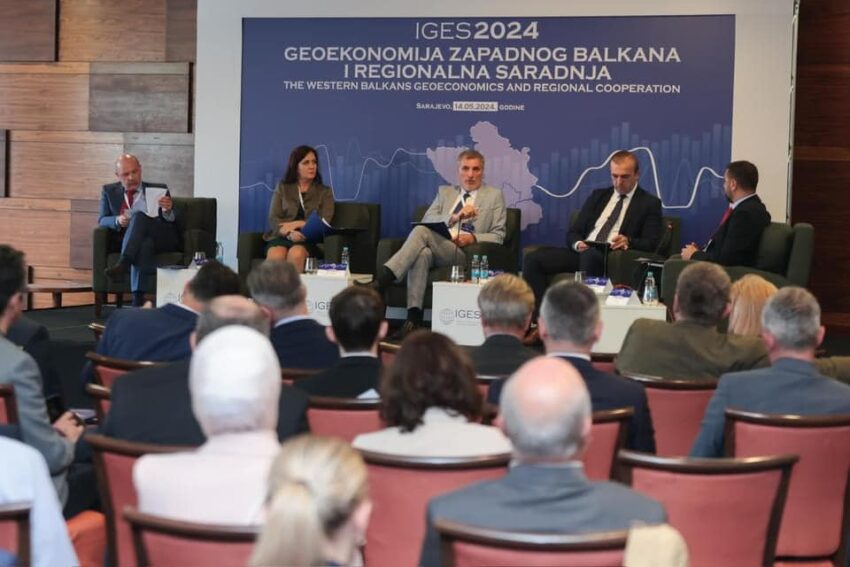The evolving economic presence of global and regional powers in the Western Balkans continues to shape the region’s development trajectories and political orientations. These critical dynamics were explored in depth at the conference “Economic Positions of Global and Regional Actors in the Western Balkans,” held in Sarajevo, Bosnia and Herzegovina, in May 2024.
The conference served as an important platform for analyzing how different international actors—ranging from the EU and China to Russia, Türkiye, and the U.S.—engage economically with countries of the region. Through a series of insightful presentations and discussions, participants examined investment trends, infrastructure initiatives, trade relations, and the political implications of economic cooperation.
Within this context, I had the opportunity to present my research addressing how economic instruments are employed not only for development, but also as tools of influence and strategic positioning in Southeast Europe in a panel discussion. The presentation underscored the importance of understanding economic relations as a key dimension of contemporary geopolitical competition.
This event brought together a diverse network of scholars and practitioners, sparking valuable interdisciplinary exchanges. It highlighted once again the strategic significance of the Western Balkans in broader global economic and political processes.
